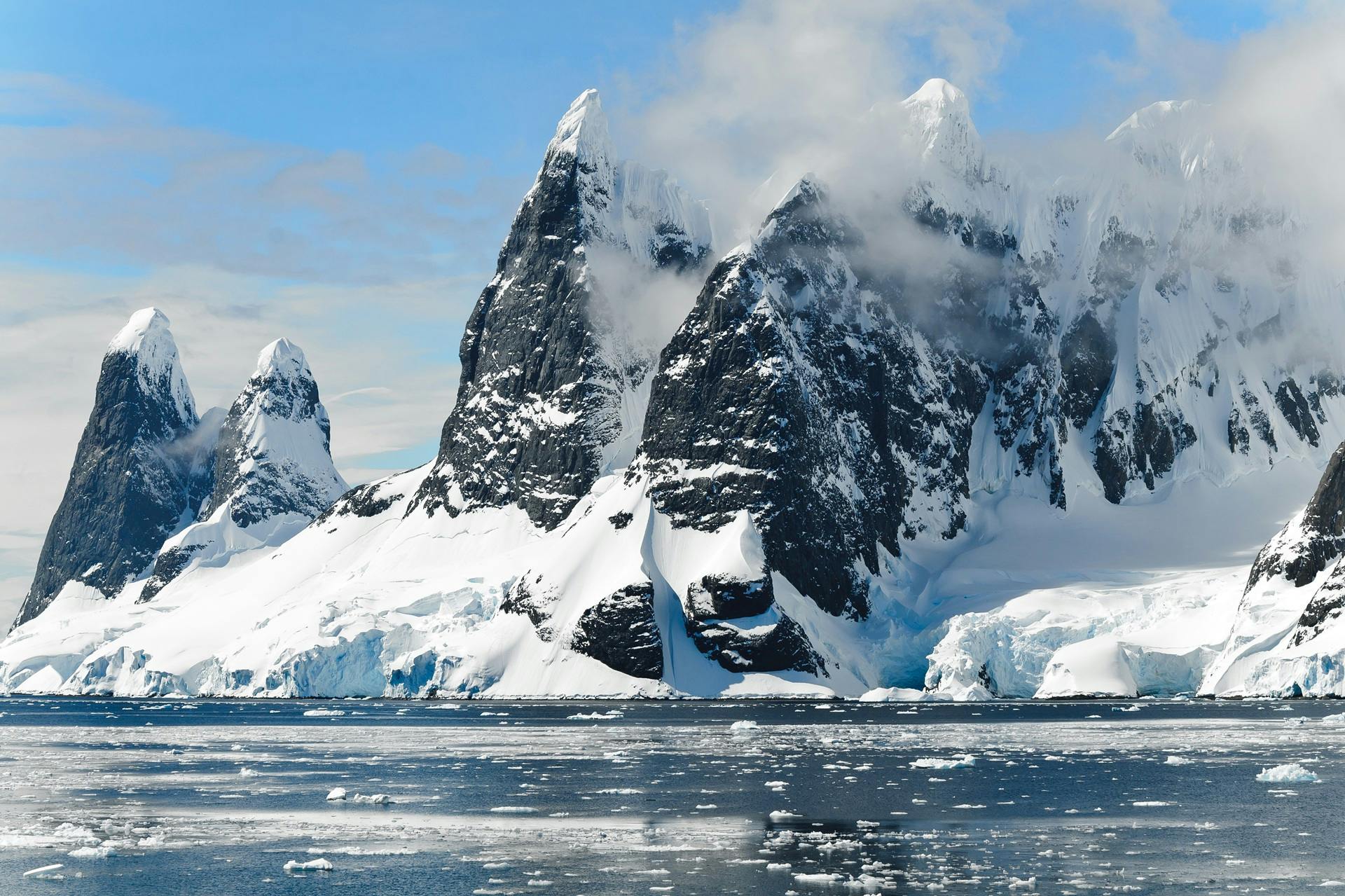Antarctica, the southernmost continent on Earth, remains one of the most remote and mysterious places on the planet. Covered almost entirely by ice, it holds secrets about the Earth’s past and future, making it a land of scientific intrigue and environmental importance. Despite its harsh, freezing conditions, Antarctica is a destination that continues to captivate explorers, researchers, and nature enthusiasts. Its extreme landscapes, abundant wildlife, and vital role in the global ecosystem make it a unique and remarkable part of our world.
- A Vast, Icy Wilderness:
Antarctica is the driest, coldest, and windiest continent, with temperatures that can drop as low as -80°C in the winter months. The vast icy landscape is dominated by glaciers and ice sheets, which cover approximately 98% of its landmass. These massive ice sheets hold around 70% of the world’s fresh water, making Antarctica a critical component in regulating the Earth’s climate. The continent is also home to the highest average elevation of any continent, with snow and ice reaching depths of up to 4,776 meters (15,669 feet) in some areas. - Rich Wildlife:
While its extreme conditions may seem inhospitable, Antarctica supports a variety of resilient wildlife, adapted to survive in one of the harshest environments on Earth. Penguins, such as the Emperor and Adelie, are some of the most iconic inhabitants, often seen in vast colonies. Seals, including Weddell and Ross seals, are also found in the region, often lounging on ice floes or swimming in the cold waters. The surrounding Southern Ocean is rich with marine life, supporting populations of krill, which serve as a crucial food source for larger animals like whales. For bird enthusiasts, Antarctica is also home to several species of seabirds that have evolved to thrive in this frozen wilderness. - Scientific Exploration and Research:
Antarctica plays a vital role in scientific research, particularly in the fields of climate change, glaciology, and marine biology. Researchers from around the world live and work in various research stations scattered across the continent, studying everything from ice cores that provide clues about Earth’s climate history to the unique ecosystems found in the surrounding seas. The Antarctic Treaty, signed by numerous nations, preserves the continent for peaceful scientific research and conservation, ensuring that it remains protected from exploitation and development. - A Land of Extreme Beauty:
Despite its harsh conditions, Antarctica is a land of extraordinary beauty. The icebergs that drift through the Southern Ocean glisten in the sunlight, while the towering mountains and glaciers reflect a unique, almost surreal landscape. The vast, empty plains of ice seem to stretch forever, offering a sense of solitude and awe. During the summer months, the region experiences continuous daylight, creating a strange and beautiful effect where the sun never sets. The stunning beauty of the icy landscape, combined with the crisp, clean air, makes Antarctica a place like no other. - The Threat of Climate Change:
Antarctica is at the front line of the global fight against climate change. The warming of the planet is having a dramatic effect on the ice sheets, with rising temperatures causing glaciers to retreat and ice shelves to collapse. The loss of ice has profound implications for global sea levels and the health of marine ecosystems. Scientists closely monitor these changes, as they hold critical information about the future of the planet. Preserving the Antarctic environment is crucial not only for the region itself but for the health of the Earth as a whole. - The Spirit of Adventure:
For many, the allure of Antarctica lies in its remoteness and sense of adventure. The continent has long captured the imaginations of explorers like Ernest Shackleton and Robert Falcon Scott, who risked their lives to discover and chart its mysteries. Today, adventurous travelers can visit Antarctica through specialized expeditions, which often include ice trekking, wildlife watching, and boat tours through the icy waters. The journey to this uninhabited, frigid land offers a unique opportunity to experience the raw power and beauty of nature in its purest form.
Conclusion:
Antarctica is a land that inspires wonder, awe, and deep respect. Its remote location, extreme conditions, and fascinating wildlife make it one of the most unique places on Earth. While it may be a place of solitude and harsh beauty, Antarctica is also a critical piece of the global puzzle, playing a key role in regulating the planet’s climate and ecosystems. Whether through scientific exploration or the desire for adventure, Antarctica holds endless fascination, offering those who visit a chance to witness one of the world’s last great natural frontiers.

